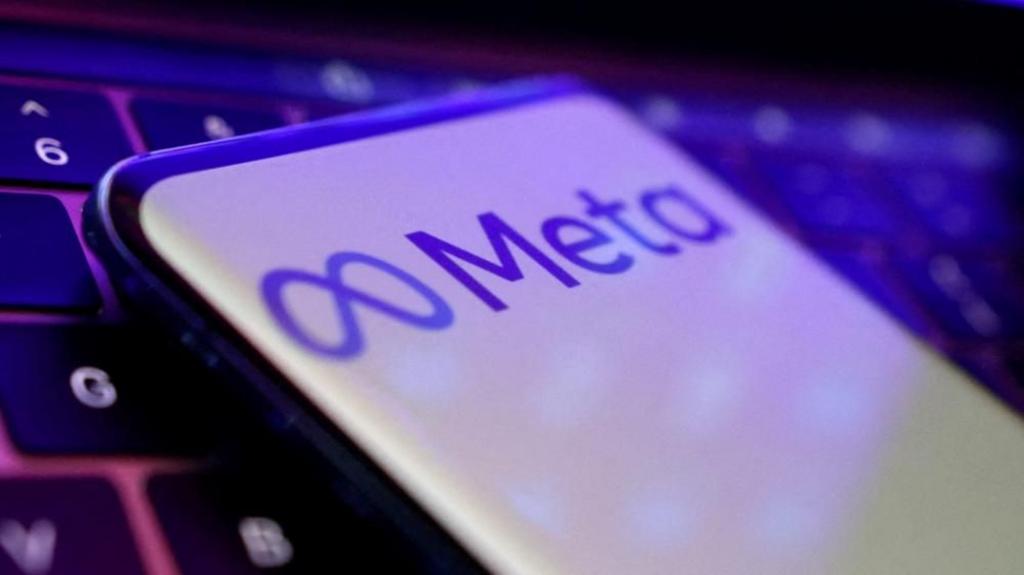A U.S. district judge in Washington has ruled that Meta Platforms, the parent company of Facebook, did not violate antitrust laws through its acquisitions of Instagram and WhatsApp over a decade ago.
The decision represents a setback for the Federal Trade Commission (FTC), the U.S. antitrust regulator, which filed a lawsuit against Meta in 2020, alleging that the company had established a monopoly in social media by acquiring its competitors.
“The Court ultimately concludes that the agency has not carried its burden: Meta holds no monopoly in the relevant market,” Judge James Boasberg stated on Tuesday.
Meta welcomed the ruling in a statement provided to the BBC, asserting that it “recognizes that Meta faces fierce competition.”
In April, Judge Boasberg presided over an extensive bench trial featuring testimony from Meta CEO Mark Zuckerberg and former Chief Operating Officer Sheryl Sandberg, who contended that TikTok and YouTube had significantly altered the social media landscape.
In his decision, Judge Boasberg noted that the FTC had reviewed and approved Meta’s acquisition of Instagram in 2012 and WhatsApp in 2014.
The FTC had argued that Meta overpaid for Instagram, acquiring it for $1 billion, and for WhatsApp, which it purchased for $19 billion.
Judge Boasberg characterized the social media environment as constantly evolving, “with apps surging and receding, chasing one craze and moving on from others, and adding new features with each passing year.”
Even if Meta once held monopoly power, he stated that the FTC had failed to demonstrate “that it continues to hold such power now,” as Meta’s market share “seems to be shrinking.”
In a statement to the BBC, the FTC indicated uncertainty about whether it would appeal the decision.
“We are deeply disappointed in this decision,” said Joe Simonson, director of Public Affairs at the FTC, adding that the agency was reviewing all available options.
Simonson also told the BBC that “the deck was always stacked against us with Judge Boasberg,” who has clashed on multiple occasions with the Trump administration and is facing impeachment efforts from congressional Republicans.
The BBC has reached out to Judge Boasberg for comment.
With its victory on Tuesday, Meta avoids a potential breakup of the company, which could have involved spinning off Instagram and WhatsApp.
“Our products are beneficial for people and businesses and exemplify American innovation and economic growth,” a Meta spokesperson told the BBC on Tuesday. “We look forward to continuing to partner with the Administration and to invest in America.”
The decision follows two previous antitrust cases won by the Department of Justice against Google, one alleging a monopoly in online search and the other in advertising technology.
However, earlier this year, another district judge in Washington presiding over the online search case declined to compel Google to spin off its Chrome browser, a measure the Justice Department had suggested was necessary to dismantle the tech giant’s search monopoly.
Against that backdrop, Tuesday’s ruling against the FTC “does feel like a change in momentum,” observed Rebecca Haw Allensworth, an antitrust law professor at Vanderbilt Law School.
“I think that’s going to influence the likelihood of more cases like this being brought.”
But, Allensworth added, the ruling doesn’t indicate that the government’s efforts to crack down on antitrust behavior are failing.
“It’s a mixed bag,” she said.
Many legal experts suggest that the FTC’s case against Meta was challenging from the outset.
The case “was always a difficult one, particularly given how quickly we have seen changes in the social networking market in recent years,” said Laura Phillips-Sawyer, a professor at the University of Georgia School of Law.
Still, she said, the case revealed “a series of statements by Zuckerberg at the time of those acquisitions that looked like a desire to squelch a nascent threat to Facebook’s dominance.”
Meta’s legal challenges are not yet concluded.
Mr. Zuckerberg has been ordered to testify in a landmark trial examining the impact of social media on young people.
Last month, Los Angeles County Superior Court Judge Carolyn Kuhl rejected Meta’s argument that an in-person appearance in January was unnecessary.
Instagram head Adam Mosseri is also scheduled to testify at the trial, which stems from accusations that Meta and other social media companies make their apps addictive to young people despite being aware of the potential mental health risks.
Sign up for our Tech Decoded newsletter to follow the world’s top tech stories and trends. Outside the UK? Sign up here.
A BBC investigation shows teens being shown content about weapons and suicide despite Ofcom ruling.
Rox was diagnosed with ADHD at 36 and says it led to a “much happier and nicer life”.
The ban takes effect on 10 December and also includes Facebook, X, TikTok, YouTube and Instagram.
With almost 300,000 followers, Viv Truran, 81, shares daily videos of her outfits and styling tips.
Earnings reports from Meta, Alphabet and Microsoft reaffirm that giants are ramping up their spending on artificial intelligence, as they rush to reap the benefits of an AI boom.

